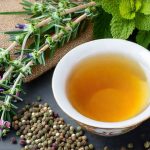Urinary tract infections (UTIs) are incredibly common, causing discomfort for millions annually. The burning sensation during urination, frequent urges, and overall feeling of unwellness can be debilitating. While medical intervention with antibiotics is often necessary, many people seek complementary ways to ease symptoms and support their body’s natural healing processes. This often leads individuals to explore herbal remedies, specifically teas, hoping to find soothing relief. However, a significant concern when crafting UTI comfort teas revolves around acidity. Many traditional recommendations—like those involving large amounts of citrus or cranberry—can actually irritate the bladder and worsen symptoms for some individuals. Therefore, this article will focus on creating effective, comforting tea blends that prioritize gentle support without exacerbating irritation through added acidity.
The goal isn’t to replace medical treatment but rather to offer a supportive adjunct approach. The teas we’ll explore aim to provide symptomatic relief – soothing inflammation, promoting hydration (crucial for flushing the urinary tract), and potentially supporting overall immune function. It is vital to remember that self-treating can be risky, especially if symptoms are severe or persistent. Always consult with a healthcare professional for diagnosis and appropriate treatment of UTIs. This article provides information about potential supportive herbal options, but it’s not intended as medical advice. We will focus on ingredients known for their gentle properties and avoid those likely to increase bladder irritation.
Soothing Herbal Foundations for UTI Comfort Teas
Building effective UTI comfort teas starts with understanding the underlying principles of support. Hydration is paramount; a well-hydrated urinary tract can more effectively flush out bacteria. Beyond simply drinking enough water, certain herbs possess qualities that complement this process. We’re looking for herbs known to be mildly diuretic (promoting urine flow without being harsh), anti-inflammatory (reducing bladder irritation), and potentially antimicrobial (though the evidence for significant antibacterial action in teas is often limited). Avoiding acidity is key; many people with UTIs experience increased sensitivity, and acidic ingredients can significantly worsen discomfort. This means steering clear of excessive citrus fruits, cranberries (despite their common association with UTIs), and even some highly concentrated herbal infusions that might be naturally acidic. Instead, we will focus on building blends around gentle, alkaline-leaning herbs known for their soothing properties. If you’re looking to further refine your diet alongside these teas, consider exploring a low-acid dietary approach.
The foundation of many UTI comfort teas revolves around marshmallow root (Althaea officinalis) and slippery elm bark (Ulmus rubra). Both are demulcents – meaning they create a soothing coating over irritated tissues. This can offer significant relief from the burning sensation often associated with UTIs. Marshmallow root is particularly gentle, even for sensitive individuals. Slippery Elm’s texture may be preferred by some, while others find Marshmallow Root more palatable. These herbs don’t directly attack bacteria; they simply soothe and protect the bladder lining allowing the body to do its work. Combining these with mild diuretics like dandelion leaf (though used cautiously due to potential interactions) or parsley can further support urinary flow without causing irritation. Remember to source high-quality, organic herbs whenever possible to ensure purity and potency.
Gentle Diuretics & Anti-Inflammatory Allies
Beyond the foundational demulcents, incorporating gentle diuretic herbs and those with anti-inflammatory properties can enhance a UTI comfort tea’s effectiveness. It’s crucial to differentiate between strong diuretics that can be harsh on the system and mild diuretics that simply encourage healthy urine flow. Dandelion leaf, when used in moderation, falls into this latter category. Parsley is another gentle option, also offering some vitamin and mineral content. However, individuals with kidney issues should exercise caution with dandelion or parsley consumption – again, reinforcing the importance of consulting a healthcare professional. Corn silk (the stigmas of corn) is traditionally used as a mild diuretic and can be included in small amounts.
Anti-inflammatory herbs play a vital role in reducing bladder irritation. Chamomile (Matricaria chamomilla) is an excellent choice, known for its calming and soothing properties. It’s generally well-tolerated and adds a pleasant flavor to teas. Calendula flowers (Tagetes officinalis) also offer mild anti-inflammatory benefits and contribute a beautiful color to the blend. It’s important to note that while these herbs can help reduce inflammation, they are not substitutes for medical treatment. The goal is to provide symptomatic relief alongside appropriate medical care. A carefully crafted tea blend incorporating these gentle allies can significantly improve comfort levels during a UTI episode. To further support your overall wellness, consider the best teas for urological soothing.
Building Your Own Comfort Blend – Step by Step
Creating your own customized UTI comfort tea allows you to tailor the blend to your individual needs and preferences. Here’s a step-by-step guide:
- Choose your base: Start with 2 parts marshmallow root or slippery elm bark. This forms the foundation of soothing support.
- Add gentle diuretic support: Incorporate 1 part dandelion leaf, parsley, or corn silk (use cautiously if you have kidney issues).
- Introduce anti-inflammatory allies: Add ½ part chamomile and/or calendula flowers.
- Flavor profile: For a more palatable tea, consider adding a small amount of licorice root (avoid if you have high blood pressure), fennel seeds, or anise seeds – all contribute a naturally sweet flavor without acidity.
- Brewing instructions: Use 1-2 teaspoons of the herbal blend per cup of hot water. Steep for 10-15 minutes to allow the herbs to fully release their properties. Strain and enjoy warm.
Important Considerations & Precautions
Before incorporating any new herbal tea into your routine, especially if you are experiencing a UTI, it’s essential to consider potential interactions and precautions. – Always consult with a healthcare professional before using herbal remedies, particularly if you are pregnant, breastfeeding, have underlying health conditions, or are taking medications. – Some herbs can interact with certain medications, potentially altering their effectiveness. – Be mindful of allergies. Start with small amounts of each herb to assess your tolerance. – Avoid overconsumption of diuretic herbs, as it can lead to dehydration. – Ensure you’re drinking plenty of water throughout the day. Understanding when to seek medical attention is also crucial; learn about UTI medication options and when a doctor’s visit is necessary.
Staying Hydrated & Supporting Your Body’s Natural Healing Processes
Ultimately, the most important aspect of managing a UTI and supporting your body’s natural healing processes is adequate hydration. Tea plays a role in this, but it shouldn’t be the sole source of fluid intake. Plain water remains essential. Aim for 8-10 glasses of water per day to help flush out bacteria and reduce irritation. Remember that UTIs require medical attention; these teas are meant to complement, not replace, professional healthcare. Focusing on a holistic approach – combining appropriate medical treatment with supportive measures like hydration, gentle herbal remedies, and rest – can significantly improve your comfort and facilitate a faster recovery. Prioritize self-care and listen to your body’s signals throughout the process. You may also find it helpful to explore foods that promote gentle diuresis without irritation.





















